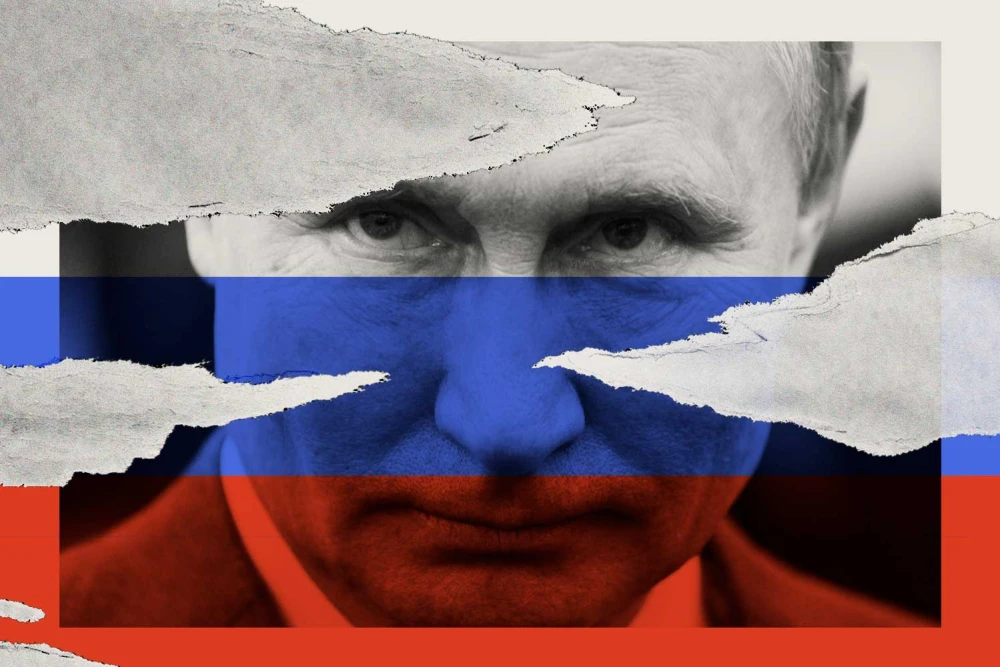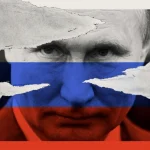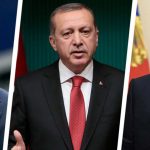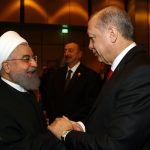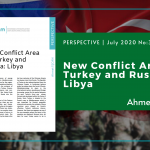Russia’s situation during the Ukraine War is subject to many different reviews. One of them, as a somewhat disputed assessment, is the emergence of the possibility of Russia’s disintegration with this process. In his article titled “It’s Time to Prepare for Russia’s Collapse” published in Foreign Policy, Prof. Alexander J. Motyl states that the possibility of Russia’s collapse and disintegration is almost never brought up, and that the West should be seriously prepared for this situation.
One year of the Russo-Ukrainian War is almost over, and Russia does not seem to have yet achieved its final goals over Ukraine. Although it is not accepted that the West is “enough”, with its multi-dimensional support, Ukraine has proven that it is not an easy bite against Russia. Leaving aside the evaluations of the war for Ukraine, its consequences for Russia are probably of greater importance for the international system. Alexander J. Motyl, in his article, describes the main factors in the collapse of Russia (or the possibility of being dragged into a civil war) as; the economic, military and moral defeat of Russia in the Ukraine War, the damage to Putin’s leadership image, corruption which possibly is a result of the war economy and ethnic and regional divisions. However, Motyl evaluates this disintegration process as a result of the “war” and bases it on some historical events. The disintegration of Napoleon’s empire after the unsuccessful Moscow campaign is the most striking of his examples. So, how similar is the situation of Napoleonic France and the Russian Federation today? In my opinion, this is a highly debatable issue.
Napoleon, who started his political career as “the resurrected state of the revolution” in Metternich’s words, is one of the most important subjects of the wave that spread the values of the French Revolution to Europe. What Napoleon threatened was primarily the Westphalian order, in which Europe established a system of monarchs with an indivisible and absolute sovereignty. This threat of Napoleon was twofold. On the one hand, it messed up multi-ethnic structures by exporting its revolutionary values to the places it went to, and on the other hand, it brought an unusual order by transforming the basic institutions of Europe such as war and diplomacy. Napoleon was understanding the war as a tool that gives an exact open field in front of the winner side. In the treaties he made after his victories, he even stated that he did not need the monarch of the signatory country to participate in the treaty phase. In this sense, with his transformation of war and peace, Napoleon appears as the complete antithesis of the Westphalian system. With the failure of the Russian Campaign and the defeat of Napoleon by the European Coalition forces, the “European Harmony” was able to create a system that provides relative peace in Europe as a “synthesis”.
Although the current situation of Russia can be read as “revisionism” by western academics without question, it should not be overlooked that Russia can also create a discourse within itself. Unlike Napoleon’s France, which Motyl compares with Russia, Putin’s Russia today states that it aims to preserve, not change, the status quo. Napoleon directly opposed the values and principles agreed upon by the European monarchs, changed the dynasties and waged a war against the system by taking the revolutionary values behind him. Russia, which was able to live in peace with NATO together with the consensus formed after the Cold War, has repeatedly expressed that it is extremely uncomfortable with the signs of NATO’s expansion and has considered this situation as a serious threat to the system and Russia’s security. Although he based the legitimacy of the Ukraine War on the defense treaties made with the “Donetsk” and “Luhansk” regions, which only Russia recognizes, Putin often expresses his right to self-defense. According to Putin, it is the West, not Russia, that should be accused of revisionism. According to this understanding, Russia produces policies to maintain the status quo after the Cold War.
The possibility – and expectation – of Russia’s disintegration during this war does not seem very realistic to me. First of all, Russia is not failing in Ukraine as it is emphasized. Currently, an area close to 20% of Ukraine is under Russian control. In Ukraine, which gave a lot of emigration during the war, the card of changing the demographics seems to be in the hands of Russia. This may provide a long-term return to Russia. On the other hand, although it may seem different from the outside, the psychological endurance threshold of the Ukrainian people who are in contact with the war will tend to decrease as the war continues. This is another factor that strengthens Russia’s hand. As a result, although Russia cannot seize its ultimate goal in the war, namely the Kyiv administration, it will be the winner if it sits on the table with a timely and wise manoeuvre. In this sense, the accurate management of Russia’s diplomatic relations with third parties will be the most important factor that will provide it with room for maneuver.
In conclusion, aside from the unsuccessful and not very meaningful comparison of Napoleon and Putin, I think it is unlikely to be able to definitively assess Russia’s military strength within the compass of Ukraine War. It should also be noted that Russia is one of the world’s largest nuclear powers. However, at this point, it is extremely important to emphasize the following. I do not think that the fact that the Putin administration has mentioned Russia’s nuclear power several times during the Ukraine War is a threat made solely by referring to the Ukraine War. This may be a rhetoric against the possibility that the republics within the Russian Federation which Professor Motyl mentioned are “channeled” to the struggle for independence against Russia, which is expected to be worn out during the Ukraine war, and thus the central structure to be disintegrated. Because while the Ukraine War is a conflict with the concept of “security”, the possibility of Russia’s disintegration will create a conflict with the concept of “sovereignty”, and in this case, Moscow will use all its power without mercy in this struggle for survival.
